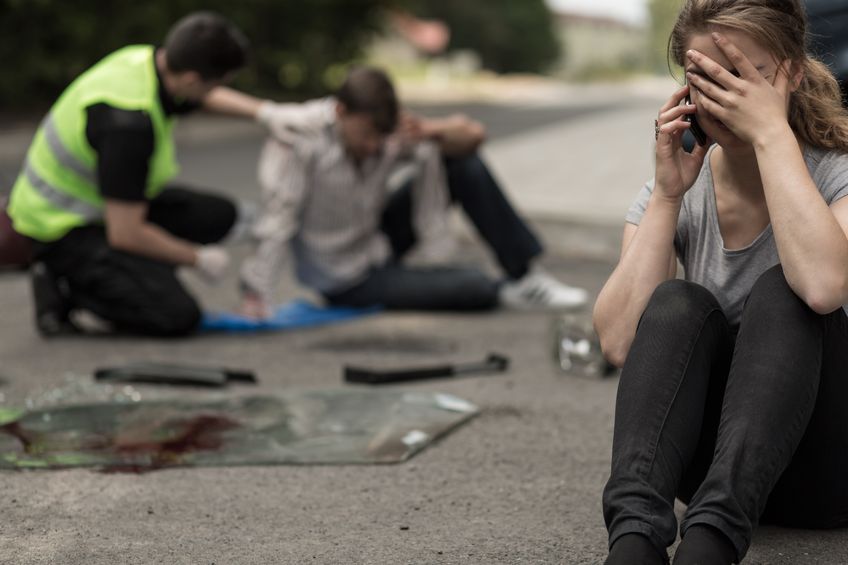

By Steve Pomper
There’s an important group getting lost within the ideological fog created by anti-police, pro-criminal politicians and community activist cop critics and criminal coddlers. The anti-good guy animus and pro-bad guy deference is prolific and well documented. The lack of respect for cops, the lack of support, and irrational expectations affect how law enforcement officers are able to do—or not do—their jobs.
Also affecting that ability is the regard for criminals many political and so-called civil rights activists seem to have. These politicians and community activists have no lack of respect for criminals, no lack of support, and these lawbreakers benefit from their benefactors’ minimal expectations.
Even with outlaws armed with firearms, politicians keep shifting the standards cops must meet when dealing with life or death situations. First, they expected the bad guys to have to draw their pistols before the officer could use deadly force. And then they wanted cops to wait until the criminal pointed the gun at the officer before firing. Now, it appears a law enforcement officer must wait until the armed thug actually fires the weapon before shooting. Even then, cops are often criticized. I hate to think about what standard comes next.
In states like Washington and more recently in California, law enforcement officers are being further constricted. Use-of-force laws are changing—for the worse for cops and for the better for criminals.
For example, a recent law changed the standard for use of deadly force from reasonable (what a reasonable police officer would do) to necessary. Considering the changing standards I mused about above, who—what civilian—will decide what was “necessary” for a police officer facing a split-second, life or death decision?
Still, this is just one among many aspects of the law enforcement debate we tend to talk about. But there is one group, one very important group, being overlooked. What about the victims? Crime victims are virtually ignored in the current discussion. Trapped between the hate for cops and the love of criminals are the victims wallowing in a void.
When people despise cops and coddle criminals, victims suffer. When a jurisdiction decides they will not prosecute certain people for certain crimes that does not magically dissolve that there was a victim of that crime. Many criminal advocates like to float the notion of victimless crimes for anything less than a serious assault.
Well, if someone steals your property, you certainly feel like a victim. In some particularly lax jurisdictions, they’ve conjured the term, “survival crimes” to absolve people of criminal responsibility. Chris Rufo, a sane community activist fighting Seattle’s lunatic status quo, discusses the theory here. Survival crime advocates are not speaking about the out of work mom stealing baby formula for her infant. That is a situational, illegal act with mitigating circumstances. No, they’re disregarding the illegal act and are considering primarily the housing and economic status of the criminal.
Let’s say two 22-year-old men steal some steaks from a grocery store. One of them has a permanent address, and the other lives in a tent on a sidewalk. The permanent addressee gets charged, and the tent dweller does not. Unlike the equal justice our Constitution guarantees us, it’s not the person’s illegal act that is at issue. Social justice warriors have made the person’s socioeconomic and housing status the preeminent issue. It seems, whatever the crime, if the suspect is deemed “homeless” or in some other social justice protected category, the crime is deemed one of “survival.”
Again, this warped system hamstrings cops, protects criminals, and ignores victims. Some people in high positions are continually attacking the law enforcement and making officers less effective. This directly affects people in the community who become crime victims who might not have been had political leaders allowed the cops to be more effective.
Law enforcement officers and local prosecutors are supposed to be advocates for crime victims. The problem in many jurisdictions is cops want to be those advocates, but their leaders won’t let them. Compound that with city, county, and state prosecutors abdicating their responsibility to their communities’ victims, and crime victims are being twice victimized.
There are many American jurisdictions headed by prosecutors who show open antipathy for the police and evident fondness for criminals. In some jurisdictions, aside from so-called survival crimes, prosecutors will not even prosecute a person charged with resisting arrest unless there is a significant injury to the officer. And, again, they completely ignore crime victims. In fact, many prosecutors today treat criminals as de facto victims—of the police and of traditional American culture, generally.
It’s obvious this needs to stop. Crime victims need to be treated with the respect they deserve. Some law enforcement associations are establishing organizations specifically designed to advocate for crime victims. Is it too much to ask that our politicians bring victims into the conversation? Sadly, these days, it seems to be.